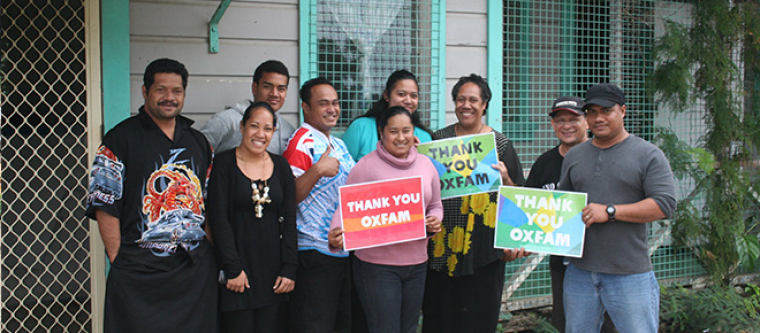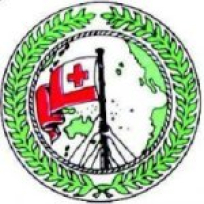Products
Shop Online
Shopping Cart

Shop Online with Tonga National Youth Congress

Tonga National Youth Congress (TNYC) was established in 1991 to better the welfare of the youth of Tonga through programs that foster responsibility, citizenship, community services and leadership.
TNYC is giving youth the skills they need to succeed.
Its programs, which include Tonga National Volunteers Service, Pacific Stars Lifeskills, Youth Parliament and Future Farmers of Tonga, provide the youth of Tonga with the skills and support to confidently manage their own lives.
The TNYC focuses on four key branches of work, one of which is the Business and Profit Oriented Division. Through this branch, Oxfam has assisted the TNYC in expanding the Future Organic Farm of Tonga (FOFT) group as an income generating business, focusing on the production of virgin coconut oil.
Read More
Economic Empowerment for Tongan Youth - NZ Aid Development and Oxfam (June 2012)
Oxfam is helping its partner, the Tonga National Youth Congress (TNYC) put Tonga’s abundance of coconut to use to strengthen the vitality of villages and build economic independence for young people.
The TNYC falls within the Pacific Regional Livelihoods Programme (to which the New Zealand aid programme is contributing over $3 million over three years) and whose other participant nations are Samoa, and Vanuatu.
TNYC was founded in 1991 by church leaders to project young peoples' voices in the Kingdom. The coconut venture is one initiative the TNYC is involved in to equip the youth of Tonga with the skills and support to confidently manage their lives. TNYC operates from its national office in Nuku’alofa, and has coordinators on Eua, Vava’u, Tongatapu, Ha’apai, Niuatoputapu and Niuafo’ou. The project involves transforming coconuts into virgin coconut oil, using graters, driers, equipment and training delivered by Oxfam, with contributions from villages and youth members.
TNYC’s first coconut oil drier was built on Eua by the Kolomaile youth group. Oxfam has trained villagers in overseeing the entire production process, from weighing and quality checks to record keeping. The equipment and expertise Oxfam provides ensures farmers produce quality virgin coconut oil to sell locally and at the organic market in Nuku’alofa.
Other equipment Oxfam has supplied includes electric coconut graters, used to extract flesh from nut, oil press machines and oil collection containers. Nothing in the process (from nut to oil) goes to waste - husks are used for fire, pressed coconut is used as pig meal, and shells are turned into kava cups.
TNYC is enabling people to explore new ways to earn money. Malina Hautau, 38, from Eua, is contributing to her family’s income for the first time. She is being supported by TNYC to use the leftover shredded coconut for cake decorating and the oil to make doughnuts, which are then sold in the village and schools.
Other business opportunities have opened up for the group such as the revival of a Saturday market and plans to expand production into other villages on Eua.
Problems facing many Pacific countries include geographic isolation and size. It can be a challenge for producers to meet and sustain demands for high volumes of produce, so first steps are being taken between TNYC and Oxfam’s partner in Samoa Women in Business Development Incorporated (WIBDI) to focus on wider Pacific cooperation.
WIBDI is unusual because it can easily source markets needed to sustain their business, and has difficulty keeping up with demand and ensuring supply. There have been on-going talks with TNYC, WIBDI and WIBDI’s largest client, The Body Shop, about sourcing more products jointly. Collaboration between TNYC and WIBDI ensures greater supply security for The Body Shop and regular business for both TNYC and WBDI.



